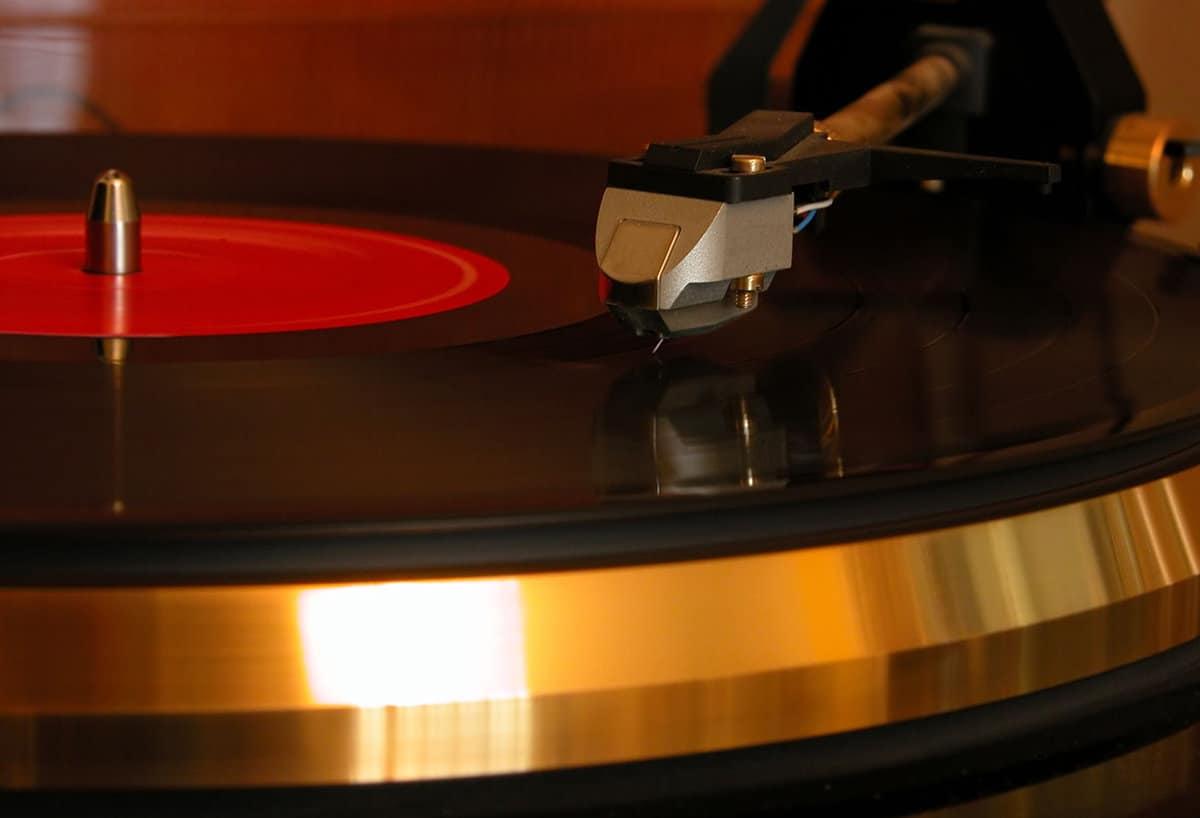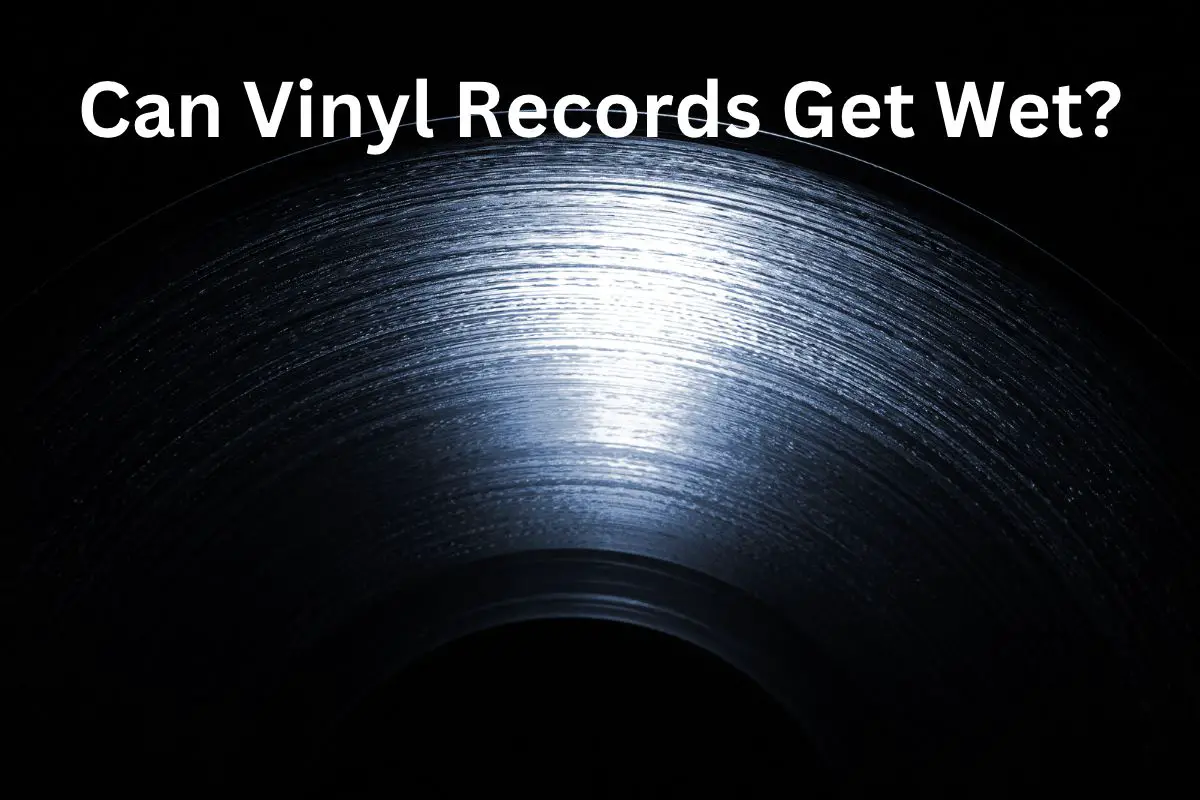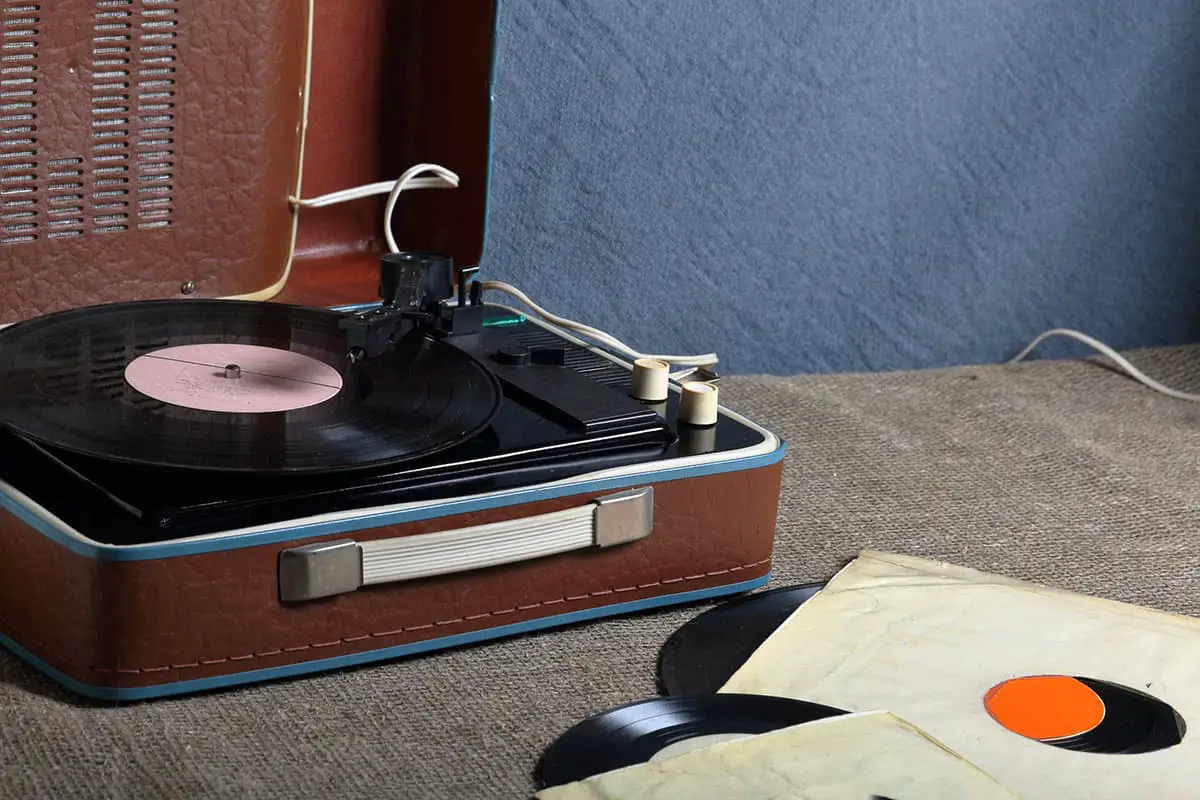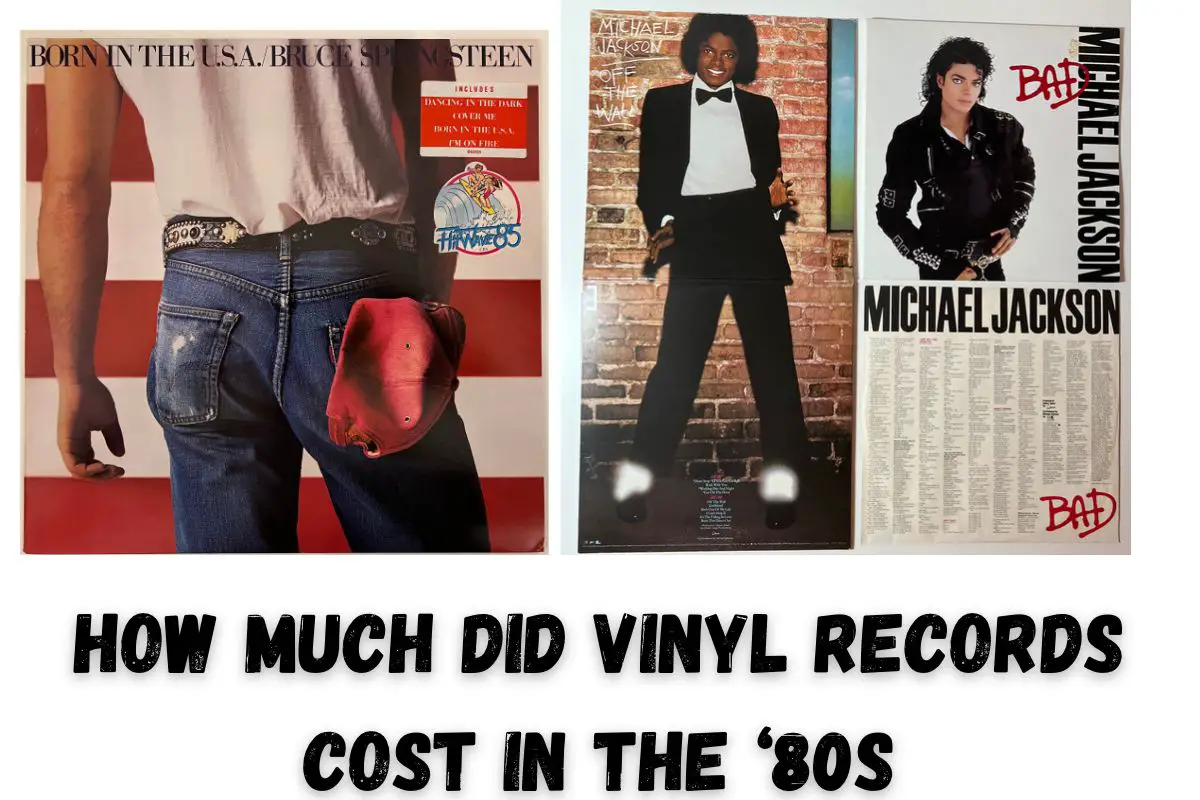This post contains affiliate links.
Vinyl records have surprisingly made a comeback in the past decade and even threaten to outsell CDs, with an increasing number of younger people becoming more interested in them. Many well-known artists have released their old albums in the vintage vinyl record format. It’s pretty cool, except some people complain about a constant crackling noise.
Vinyl records crackle because of dust and other impurities caught in the grooves, scratches and microscopic cracks on the record, and static electricity. Vinyl records must have a smooth surface to ensure they produce the finest sound. Unfortunately, they’re very delicate and difficult to maintain.
Suppose you are one of the newer collectors or have inherited some old vinyl records and have encountered a crackling noise in one of your pieces. This article will help you understand why it happens and how to prevent it, allowing you to keep your records in pristine condition for longer.
Table of Contents
Reasons Why Vinyl Records Crackle
Vinyl records, properly called phonograph disc records or less often LPs, are among the earliest evolutions of music format. They truly transcend time as you can find numerous people of all generations interested in collecting and using them.
You may have seen movie scenes where actors play LPs where you can clearly hear crackles. This might lead you to believe that it’s normal for an analog sound storage disc to produce such noise. After all, it’s analog! Well, there’s a bit of truth in that.
Some music enthusiasts and avid LP collectors may even fondly say that these crackles give the classic records a certain appeal that makes them unique. However, not all crackling noises can be ignored as they may be warning signs that your records or the player may have some problems.
Several factors can contribute to the crackling noise you hear on your records. Below is a list of common causes and an explanation of why the crackles happen.
Dirt and Dust
Over time, dirt will inevitably build up on surfaces, especially those that don’t receive enough attention with regular dusting. Vinyl records are no exceptions. Improper storage or lack of a regular cleaning routine after using your LPs may cause them to accumulate dust faster.
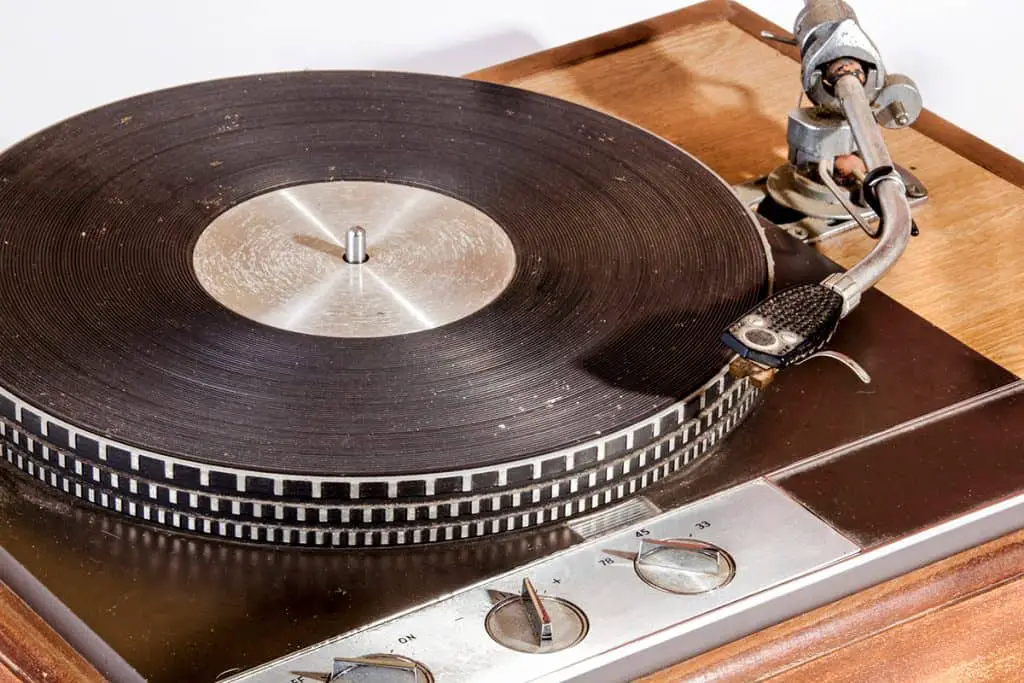
Most people use a feather duster or a regular brush to remove dust from surfaces. Some might even think it is okay to use the same for vinyl records. Sadly, that isn’t the case. Using these cleaning tools will only cause the dust to lodge deeper into the grooves and make it near impossible to remove.
When dust gets lodged into the grooves of a record, it can alter the quality of the sound and cause crackling as the dust gets picked up or struck by the record player’s stylus. It can also damage the stylus and possibly any other LPs you play on your record player afterward.
Impurities From the Factory
Inconsistency in the manufacturing process and the use of recycled or poor-quality materials may cause impurities in the vinyl records and bring about unwanted crackles.
Some vinyl records may also be less resistant to heat than others due to certain materials present in them. This makes them more prone to damage from exposure to high temperatures. Poorly made records may also be sensitive to weight and may dent if stored improperly.
While most manufacturers keep their LP record recipe a secret, well-made records made mainly from polyvinyl chloride (PVC) are usually highly durable. They can last a long time when cleaned and stored properly.
Microscopic Scratches and Cracks
Many household items, including vinyl records, have specific requirements to help them work well and last long. Using the wrong cleaning materials may damage or create scratches on the record’s surface and cause crackling.
Improper handling or accidents may also cause irreparable scratches on the records. For instance, when setting up the record player, the position of the stylus can damage the surface of a record. If the stylus is set up too deep into the disc, it can dig into the grooves and significantly alter the sound with repetitive playing.
Static Electricity
As hinted at earlier, LPs are made from PVC. PVC is a non-conductive plastic that can build up static electricity over time when it comes in contact with other non-conductive materials. The LP sleeve and the cloth you use to wipe down the record are common sources of static electricity.
Friction is the main source of static electricity when playing vinyl records on your turntable. As the disc spins, the stylus rubbing against it can also generate static energy. As the energy builds up, the record will attract more dust and eventually create crackling noises when the stylus catches on it.
How To Stop Vinyl Records From Crackling
Although it may be a lot to remember and pretty troublesome to follow for new collectors, proper upkeep of vinyl records is essential. Regularly maintaining your records keeps them working at their best for a long time. Check the tips below if you have a few records that you don’t want to crackle:
Keep the LPs in Their Sleeves When Not in Use
Keeping the records in the corresponding sleeves when not in use can help minimize dust buildup and any potential damage to their surface. It can also help organize your collection and make it easier to find the album you want to play later.
Plus, your records will look nicer and hold their value better if you still have the original sleeves.
Store the Records in an Upright Position
Records are pretty durable, but when stored on top of each other in huge piles, they may be at risk of dents. They may also be easy to overlook. If you accidentally place something heavy on top of your records, they’ll have to suffer under the weight.
If you love traveling with your records, you should check out the Victrola Vintage Record Case (available on Amazon.com). It is portable, fits around ten records snugly, and comes in various designs and colors.
Related article:
Remove the Records From the Player After Use
If you are using a record player with a dust cover, it’s fine to close the lid after use to prevent dust buildup. Otherwise, it is best to keep the habit of removing the record, cleaning it properly, and storing it after use to keep them clean and safe. This ensures that the record stays in pristine condition for years to come.
Related article:
Use the Right Materials When Cleaning Your Vinyl Records
Any regular household cleaning brush won’t do when cleaning your vinyl records. They’re likely to damage your LPs instead of cleaning them. It would be much better and safer to use a soft microfiber cloth or a soft carbon fiber brush that works to remove dust and dirt on the record’s surface.
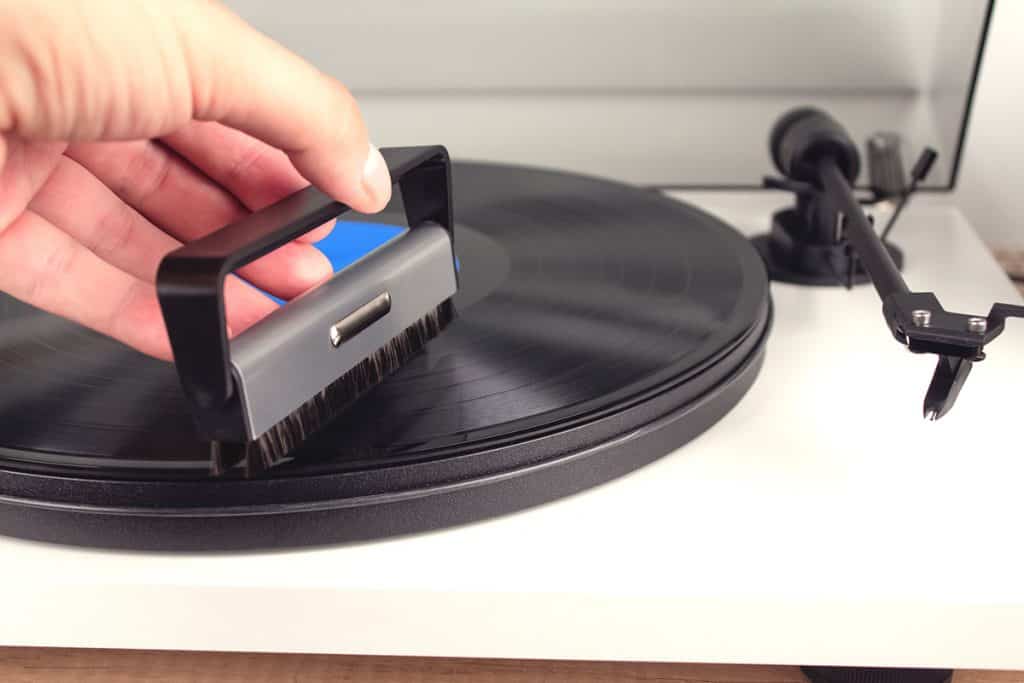
Invest your money in the Boundless Audio Record Cleaner Brush (available on Amazon.com) if you own a lot of records. It’s made of fine carbon fibers that can gently remove dust. It also has an anti-static effect that reduces crackles caused by static electricity buildup.
Since deep cleaning requires some pricey materials and equipment, it might be best to hire professional services for any issues beyond dust. It’s pretty helpful if you don’t have too many records in your collection that merit your own cleaning equipment.
In addition, leaving your records at the hands of experts would help ensure that they are properly handled and guarantee that they would last longer.
Final Thoughts
Avid collectors of vinyl records spend a certain amount of time, dedication, and money to keep their collection in top shape for as long as they can.
If you have listened to a record playing recently and fell in love with the quality of its sound or the overall experience and want to start your own collection, you’d better understand that it’s not just a hobby but a passion. You might as well read more articles or conduct a little research if you are up for the challenge.
VacationVinyl.com is a participant in the Amazon Services LLC Associates Program, an affiliate advertising program designed to provide a means for sites to earn advertising fees by advertising and linking to Amazon.com. We also participate in other affiliate programs which compensate us for referring traffic.

